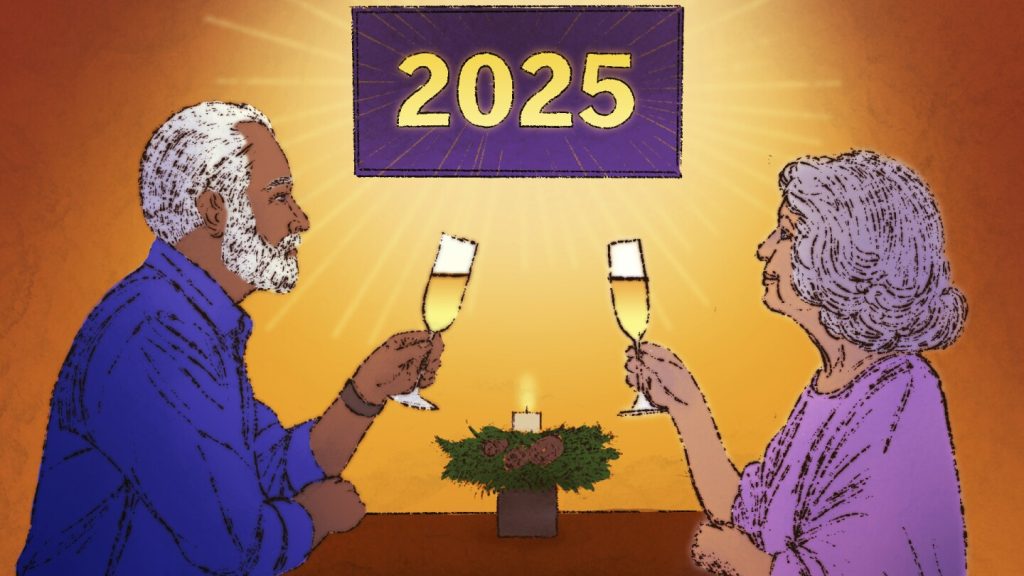As the new year approaches, many Americans are opting for a more relaxed celebration, with a majority planning to stay at home for New Year’s Eve. A recent poll conducted by The Associated Press-NORC Center for Public Affairs Research revealed that most U.S. adults will be celebrating the start of 2025 in the comfort of their own homes. Only a small percentage, around 5%, plan to go out to celebrate at a bar, restaurant, or organized event. This trend towards quieter celebrations reflects a shift towards low-key gatherings, with factors such as cost and the current global climate playing a role in decision-making.
Despite the subdued New Year’s Eve plans, many Americans are looking towards the future by making resolutions for 2025. More than half of the respondents in the poll indicated that they intend to make at least one resolution for the upcoming year. There is a sense of optimism among some, with about 4 in 10 believing that 2025 will be a better year for them personally. However, a significant portion of respondents are not expecting much change, with about one-third stating that they do not anticipate a difference between 2024 and 2025, and one-quarter predicting that 2025 will be worse than the previous year.
The preferences for New Year’s Eve celebrations vary among different age groups, with younger adults showing more interest in going out to bars or events compared to older adults. While about 1 in 10 adults under 30 plan to celebrate outside their homes, about 3 in 10 adults over 60 do not plan to celebrate the beginning of the new year at all. Some individuals are opting for unique celebrations, such as traveling to different countries, as a way to mark the occasion. The shift towards quieter celebrations and unique experiences signifies a changing landscape in how Americans welcome the new year.
Resolutions are a common tradition for many Americans as they look towards the future. Millennials and Gen Z are particularly enthusiastic about setting goals for the upcoming year, with about two-thirds of them expressing intent to make resolutions. Women are also more likely than men to set goals for 2025. Popular resolutions include commitments to exercise more, eat healthier, lose weight, prioritize mental health, and improve financial well-being. These goals reflect a desire for personal growth and self-improvement in the new year.
As individuals prepare to welcome 2025, they are focusing on various aspects of their lives that they hope to enhance. Mental health emerges as a significant area of focus for many, with individuals expressing a desire to prioritize self-care, relaxation, and emotional well-being. Social connections and physical activity are also highlighted as important elements for a fulfilling year ahead. The emphasis on holistic well-being underscores the importance of maintaining a balance between various aspects of life for a happy and healthy 2025.
In conclusion, as Americans gear up for the start of a new year, they are embracing a mix of quiet celebrations, unique experiences, and personal goals. The shift towards quieter festivities, combined with a focus on self-improvement and well-being, reflects a changing mindset among individuals as they navigate the challenges and opportunities of the upcoming year. Whether at home with loved ones, traveling to new destinations, or setting resolutions for personal growth, Americans are preparing to welcome 2025 with a sense of optimism and determination.














